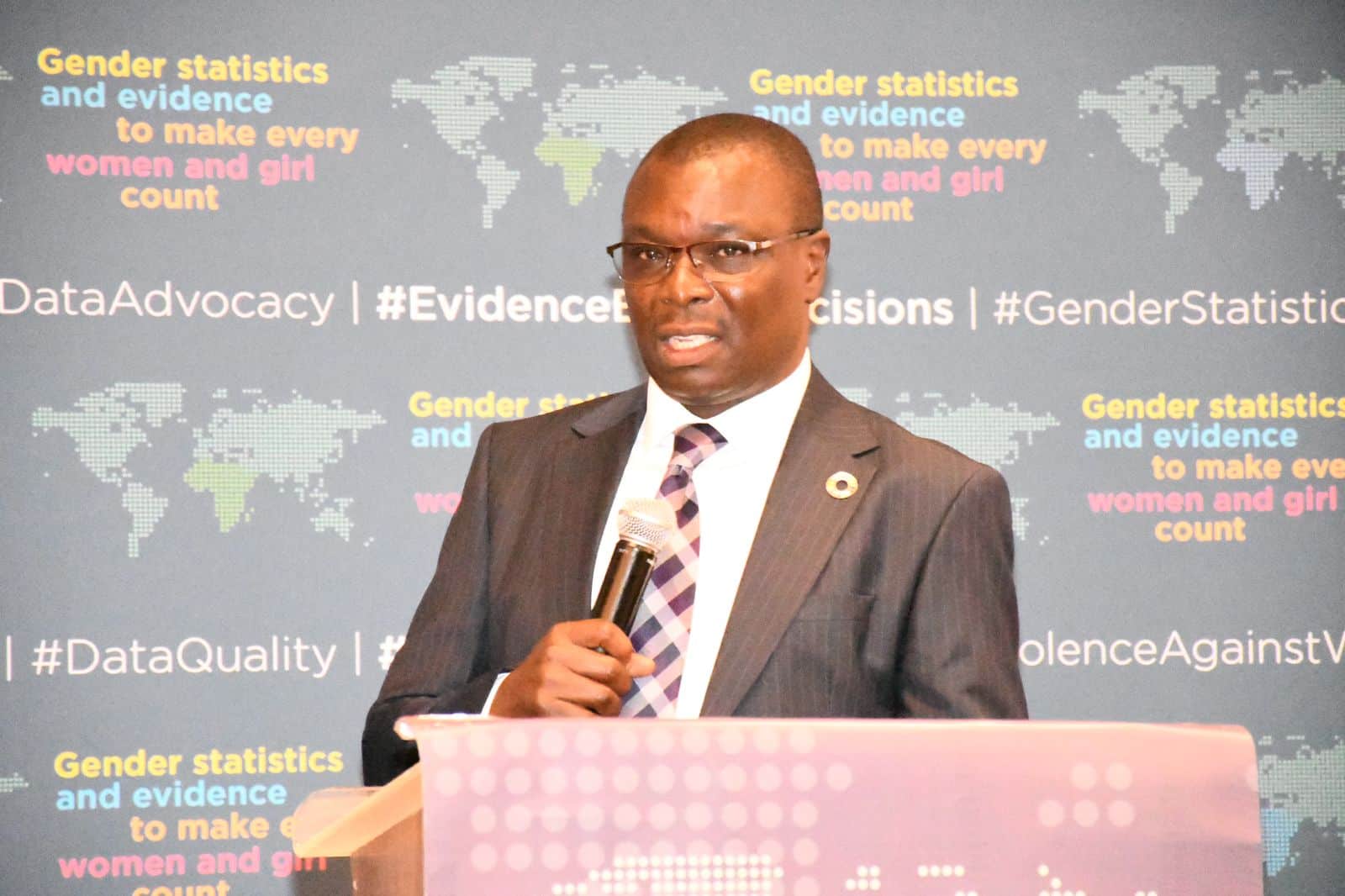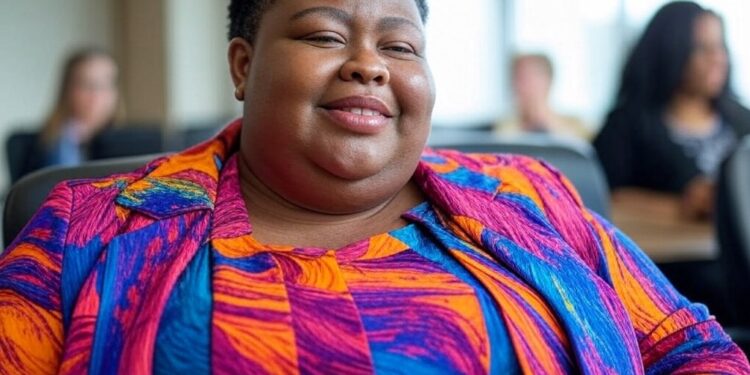Have you ever been abused online based on your physical appearance? This can happen maybe, after you post something on social media platforms or comment on a post. This is what we call online body shaming.
This harmful behavior often occurs online, where individuals are targeted for their weight, shape, height, or any perceived imperfection.
Body shaming can lead to feelings of inadequacy, low self-esteem, and even mental health issues like anxiety or depression.
The rise of social media has amplified body shaming, as people often feel empowered to pass judgment behind the anonymity of a screen.
The Kenya Times interviewed victims of online body shaming who shared their experiences and also sought insights from mental health experts who provided solutions on how to deal with the vice.
Victims Shares Experience of Online Body Shaming
Does Not Using Makeup on Screens Mean You’re Not Beautiful?
A media personality Chepkoech Towett recalled how she got an opportunity to host a podcast called The Tackle, which was aired live on TikTok.
She mentioned that one of her first interviews was with car city dealer Khalif Kairo in 2024, in a segment called Common Sense, Sense for Money, where he discussed his journey in business.
“You know, Khalif Kairo was a young person doing business, and it was around that time, during the Gen Z movement and there was already a lot of political tension,” she said.
“He is a social media bigwig and generates a lot of traffic wherever he goes, and he came for the interview.”
Also Read: From Jaw Wiring to Ozempic: The Dangerous Quest for Weight Loss in Kenya
Towett says she does not wear make-up and has had an acne problem that she tries to manage.
During the interview, Towett described how users in the comment section questioned why she appeared on their screens “without makeup”.
“Some of the clips were not edited, but they were uploaded on our TikTok page, and again, it was also live,” she said.
“The kind of comments that came in were like, ‘Oh, this girl is not even beautiful. You are not even wearing makeup. They completely shifted focus from the content and decided to attack my appearance. It was no longer about what I can do but how I look.”
Towett mentioned that after the show, the producer told her that she might have seen the comments or that someone might bring them up, so they decided to show her.
“It was on a Monday. Do you know I struggled to come for the next day? In fact, I almost canceled the next day’s show. It really got to me,” she said.
“I felt so horrible. I was like, why am I being judged for how I look? And not to say that I look bad.”
‘A Thinker with Body Parts’- Journalist Recalls Being Body-Shamed Online
On her part, a journalist who requested anonymity narrated how, on the day President Uhuru Kenyatta’s spokesperson Kanze Dena made a mistake and mentioned the wrong date, people started trolling her.
She went on to defend Kanze Dena, but people turned on her. The journalist described how even those close to her insulted her for having “big breasts”.
“Of course, I was emotional, but I was pointing out facts. And my words were, ‘If we had a penny for every mistake we’ve ever made,” she said.
“It hurt at that time because they were my friends. So, they were like, ‘You fat woman, you only think with your big boobs.’ Others were like, ‘If only your brain was the size of your boobs.’ And yes, my boobs are big,” she stated.
“The particular guy would tag someone else to continue stating, ‘come, see this lady, instead of adding brains, she’s adding breasts.”
She added, “I was called a lot of empty brain and a thinker with body parts.”
According to her she acknowledged that she had been bullied enough before and would say, “Okay, I’ve added breasts, but let’s talk.”
In another instance, the journalist commented on a situation where the Kenya Defence Forces (KDF) allegedly invaded Congo and killed a soldier, as reported by the Daily Nation, stating, “This is not a good idea, and KDF should not have invaded Congo.”
She mentioned that the comment received more than 2,000 impressions, with three-quarters of the responses being critical and filled with insults.
Internet Haunting You
A Nyeri politician, Kathy Irungu, highlighted how she joined politics in her youth and became a point of discussion on personal life.
“First of all, I would like to remind you of one thing. They say the Internet does not forget,” she said.
“One of my experiences is that I got into politics at the age of 25. And, as a young woman who was then unmarried and without a child, then I became a point of discussion on personal life and things like this.”
Kathy stated that after that, she became a mother and was a wife at some point, and those experiences have a way of following her.
“It really has made some of us to actually almost exit the social media space to be to keep sane and keep safe and even actually just safeguard our families and our children,” Kathy added.
“So, you really try to shave them off, but you can’t because something was said, those many, many years ago about you, and you cannot really remove it from the internet.”
Also Read: Experts’ Advice on Effective Ways to Lose Weight
Mental health expert Catherine Mwati explained that when we are insulted based on our appearance, we begin to feel dissatisfied with our own body image and start developing negative thoughts about our bodies.
“It affects our self-esteem, the kind of value and worth attached to ourselves. There’s also the ideal self, where we have our aspirations and dreams. So, if I have low self-worth, even my dreams become affected, and my confidence to reach my full potential is impacted,” she said.
“You realize that some people may begin to depend on the comments they’ve received. They start struggling with questions like, ‘Do I now start eating so that maybe my body can be bigger?'”
Mwathi stated that when there is repeated shaming, somebody becomes very cold inside, and self-esteem keeps on greedily going lower and lower.
“As a result, you realize the person cannot stand on their own. They need a lot of validation for them to even to take up something they used to do,” she said.
Long-Term Effects of Body Shaming on Mental Health
Mwati stated that she has seen people become very frustrated in life, especially after experiencing anxiety, to the point where they don’t want to interact or even be seen by anyone.
She adds that at times, even when facing people, you might realize that the person is struggling and could experience panic attacks.
“There is a bit of depression. The value for self has gone. Energy for anything is not there because the way we look at ourselves is in a bad light,” she stated.
According to Mwathi, there are those people who become suicidal, and they start nursing the suicide ideations.
“Especially, cause of shame. How am I going to live with peace? How am I going to live with society looking at me through these eyes? And the tendency to get to some of these personality disorders is very high,” Kathi noted.
Psychologist Caroline Sudi told The Kenya Times, that body image issues and body shaming can seriously impact mental health and self-esteem.
“I was a victim of body shaming growing up because I was extremely thin. People used to tell me to eat more or joke that I would be carried away by the wind.
“It affected my self-esteem, making me anxious about social gatherings and how I looked in different outfits.”
Further, she shared that body shaming can lead to negative body image, anxiety, and even depression.
According to Caroline, social media has amplified unrealistic beauty standards, but body shaming has existed for generations, often rooted in cultural perceptions of beauty.
Dealing with Shaming
According to Catherine Mwathi, you should practice self-love, self-awareness and acceptance to overcome negative body image.
“The first thing is to practice a lot of self-love and positive self-talk. Do you love yourself? Do you love you and have you accepted?” she posed
“The key thing here is acceptance. Have I accepted myself just as I am? That is the starting point. Then, by accepting myself, I will positively love myself and I also talk positive about me. I also be very careful on those people who might be toxic and they want to put me down.”
Follow our WhatsApp Channel and join our WhatsApp Group for real-time news updates.











































































